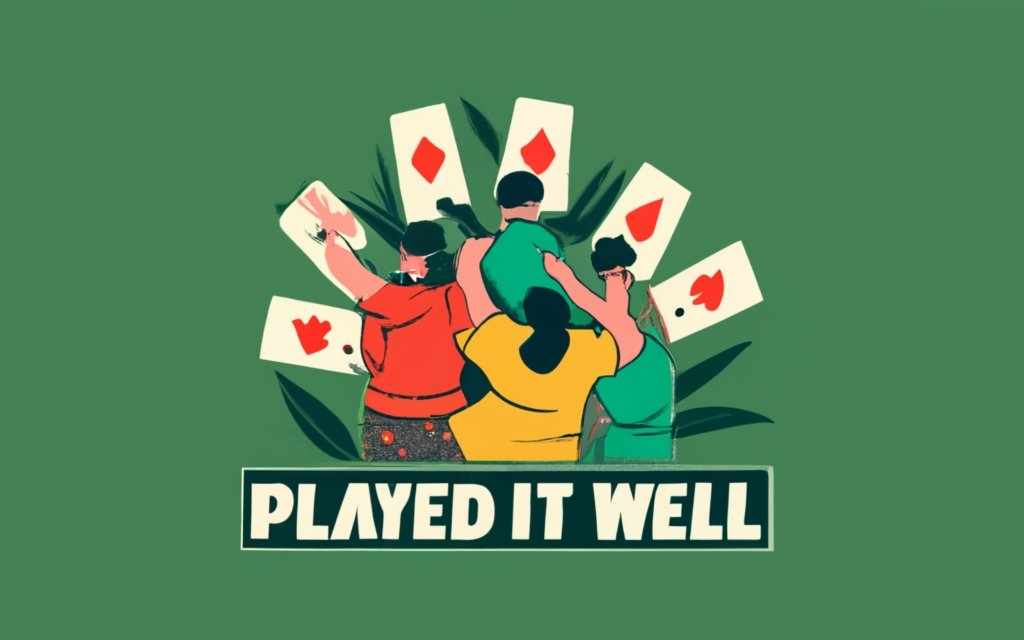Ever fancied yourself a high roller at the poker table but just didn’t know where to start? Overwhelmed with the jargon and tactics? Understandable, as mastering poker isn’t merely about having Lady Luck on your side, it’s also about strategy, skills, and understanding the game inside out. “How to Play Poker” is here to guide you from being a novice, unsure of the difference between a ‘bluff’ and a ‘fold’, to a confident player, ready to face seasoned pros with a cool demeanor and a sharp mind. This is your one-stop guide, the encyclopedia you need to navigate the fascinating realms of this classic card game.

This image is property of images.unsplash.com.
Understanding the Basics
Before you can confidently play poker, you need to understand the basic terminology, hand rankings, and betting rounds.
Know the basic poker terminology
Just as how you’d need to familiarize yourself with a foreign language before visiting a non-English speaking country, the world of poker has its own distinctive terms and jargon. To play the game effectively, you must grasp the basic poker terminology. A ‘hand,’ for instance, refers to the cards that you’re dealt. A ‘chip’ is what you use to bet, and the ‘pot’ is the collective pool of all the bets made in a round.
Understanding poker hand rankings
Understanding poker hand rankings is crucial in deciding which cards to play and which to fold. Poker hand rankings start from the highest, which is a Royal Flush (A, K, Q, J, 10 all of the same suit), down to the lowest, which is a High Card (when you have no other valid combinations, your highest card is your hand).
Understanding the betting rounds
A typical game of poker has several betting rounds. These rounds usually start with the dealer dealing cards and continue until all players have had a chance to play. Depending on the poker variant being played, there might be three, four, or even five betting rounds.
Preparing to Play
Preparation is key when getting ready to play poker. This includes choosing the type of poker game, setting up your game, and deciding on the initial stake.
Choosing the type of poker game
There are many variations of poker to choose from, including Texas Hold’em, Omaha, Seven-Card Stud, and more. Each variant has its own unique rules and strategies. You should choose a game that suits your preference and playing style.
Setting up your poker game
Setting up your poker game involves sorting out the practical details. Determine where the game will be played, whether it’s a physical or online setup. Procure the necessary materials like poker chips, cards, and a comfortable table.
Deciding on the initial stake
It’s crucial to establish the initial stake before starting the game. The stake is the amount of money that players are willing to risk in the game. Keep in mind that poker is meant to be a fun and engaging game, so choose a stake amount that everybody is comfortable with.
Poker Table Mechanics
Let’s talk about the mechanics at the poker table: the direction of play, dealer position, and how to shuffle and deal the cards.
Direction of play
In poker, play moves clockwise around the table. This means that the player to your left will act after you and the player to your right will act before you. Knowing the direction of play can influence your betting strategy.
Identify the dealer position
In a professional game of poker, the dealer doesn’t participate. However, in a casual game, the dealer role rotates among players. The dealer button, a small marker, is used to identify the dealer position. This is crucial as it influences the betting order.
How to shuffle and deal the cards
Shuffling ensures the randomness of the cards to be dealt. After the cards are shuffled, the dealer deals the appropriate number of cards to each player, typically starting with the person to their left and continuing in a clockwise direction.
Poker Betting Basics
Betting is the essence of poker. Learn about the importance of poker chips, how to make a bet, and understand the concepts such as calling, raising, and folding.
The importance of poker chips
Poker chips represent your currency in the game. Each chip has a different value. Instead of using actual money, players use chips to make their bets, call, or raise. This allows for smoother gameplay.
How to make a bet
Making a bet is relatively straightforward. When it’s your turn, simply move your chips into the center of the table. The amount of chips you put in determines the value of your bet.
Understanding concepts such as calling, raising, and folding
‘Calling’ means matching the current bet to stay in the hand. ‘Raising’ means increasing the current bet, forcing other players to either call your raise or fold. ‘Folding’ means deciding not to play your hand and waiting for the next one.

This image is property of images.unsplash.com.
Order of Play
Poker has a specific order of play, starting with the player on the left of the dealer, continuing to the next round, and ending the game by declaring a winner.
Starting the play with the player left of the dealer
The first player to act is the one immediately to the left of the dealer. This player has the option to bet, check if no previous bet has been made, or fold.
Continuing to the next round
After each player has acted, the next round begins. Depending on the type of poker being played, extra community cards might be dealt and additional rounds of betting may occur.
Ending the game and declaring a winner
Once the final round of betting is complete, players reveal their cards. The player with the highest-ranking hand wins the pot. In case of a tie, the pot is split among the winners.
Opening the Round
Opening the round involves the initial betting amount, the concept of blinds, and the ‘dealing in’ process.
Decide the initial betting amount
The player to the left of the dealer makes the first bet. This bet, also known as the opening bet, sets the tone for the rest of the round.
Concept of blinds
In some versions of poker like Texas Hold’em, the first two players to the left of the dealer have to place compulsory bets known as the ‘small blind’ and ‘big blind’ respectively. This forms the initial pot and sparks action at the table.
The process of ‘dealing in’
The ‘dealing in’ stage is when cards are dealt to each player. Depending on the type of poker, this could be either facedown or face-up. Each player then evaluates their hand to decide their next move.

This image is property of images.unsplash.com.
Playing the Poker Hand
Playing the poker hand involves subsequent dealing rounds known as the Flop, Turn, and River, followed by the revelation of hands.
The Flop
In games like Texas Hold’em and Omaha, the first three community cards that are dealt face-up on the table are referred to as the ‘Flop.’ This follows the first round of betting.
The Turn
After the Flop and the ensuing betting round, the next card dealt face up is called the ‘Turn.’ This card can significantly change the power rankings of hands.
The River
Following another round of betting after the ‘Turn’, the last community card to be dealt is the ‘River.’ This is the final opportunity for players to improve their hands before the last betting round commences.
Revealing the hand
After the final betting round, if two or more players remain, the game advances to the ‘Showdown.’ Players reveal their cards, and the best hand, according to poker hand ranking, wins the pot.
Poker Strategies for Beginners
Mastering few poker strategies is crucial even for beginners. These include understanding pot odds, player behavior and tells, the importance of position, and when to bet.
Pot odds
Pot odds are the ratio between the size of the pot and the size of a proposed bet. It’s a concept that’s crucial when deciding whether to call a bet. The idea is to compare the potential earnings (the pot) to the anticipated cost (the call). If the pot is larger, it’s generally worth the risk.
Player behaviour and tells
‘Cues’ or ‘tells’ are involuntary signals that players give off that can provide savvy opponents with information about the strength of their hand. Recognizing these can give you an advantage in deciding your own gameplay.
Importance of position in poker
In poker, the action follows a clockwise route. Being in a ‘late’ position i.e., playing closer to the dealer, is an advantage. You get to see most of your opponents play before making your own decision.
When to bet and when to fold
A cardinal rule in poker is to bet when you have a strong hand and fold when your hand is weak. Mastering this judgement can save you from prolonging losing hands and allows you to maximize your potential winnings when you have a strong hand.
Advanced Poker Strategies
Bluffing, balance between playing tight or loose, and knowing how to balance your range are few advanced poker strategies.
Bluffing in poker
Bluffing refers to acting in a way to make your opponents believe you have a stronger hand than you do. It’s a risky strategy, but when executed correctly, it can often reap big rewards.
Playing tight or loose
Playing ‘tight’ means you play fewer hands and take less risk. Playing ‘loose’ means you’re in the game with more hands, thus increasing potential risk but also potential gain. A good poker player knows when to switch between tight and loose gameplay.
Balancing your range
‘Balancing your range’ means that you’re not always playing in predictable patterns. It makes it harder for your opponents to read your hand based on your betting patterns. It involves a mix of strategies to keep your gameplay unpredictable.
Poker Etiquette and Rules
Poker is a social game and following certain etiquettes ensures a pleasant experience for all. You should also be aware of the specific rules for different types of poker games.
Common courtesy at the poker table
Whether online or in-person, respecting other players goes a long way. Don’t interrupt when it’s not your turn, refrain from abrasive comments, and avoid revealing your cards until it’s required.
What to do and what not to do
Avoid ‘slow rolling’ – taking a long time to call when you have a winning hand. Also, refrain from ‘string betting’ – where you add more chips to your initial bet in one go, which is considered a breach of the rules.
Specific rules for different types of poker games
Each poker variant has its rulebook. It’s essential to understand their specific rules – be it Texas Hold’em, Seven-Card Stud, or Omaha – before diving into the games. By understanding these rules, you can avoid making mistakes that could cost you critical chips.
In conclusion, poker is a game of strategy, psychology, and luck. Understanding the basics and the etiquette, and being aware of different strategies can significantly enhance your gaming experience and could tilt the odds to your favor. Remember to enjoy the game and play responsibly.


